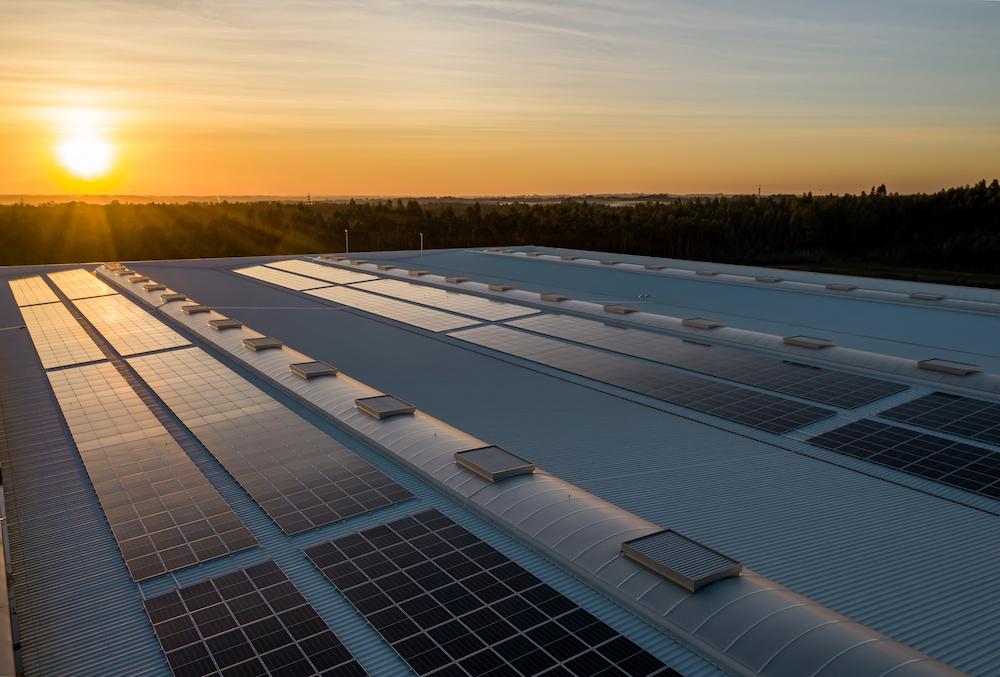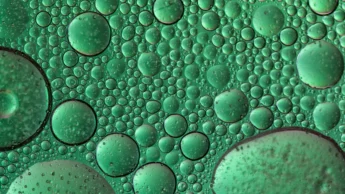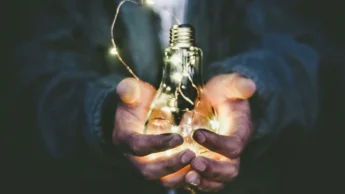The accessibility of solar panels has skyrocketed in recent years. More and more households are choosing to have solar panels installed to save on their energy consumption. But how does solar energy actually work?
The sun is an inexhaustible source of clean energy. With the help of a solar panel, we can convert sunlight into electricity and heat. Solar energy should eventually eliminate the need for fossil fuels to generate energy.
In this article, we dwell on solar energy. We would like to tell you what it is and how it works.
- What is solar energy?
- How does solar energy work?
- How is solar energy captured?
- Advantages of solar panels
- Disadvantages of solar panels
Also want to live gas-free? Download our free e-book and find out what you can do.
What is solar energy?
Solar energy is the collective term for a number of different technologies for converting sunlight into usable forms of energy. Solar energy can be converted into solar power. This is done by using solar panels, a solar water heater or by passively using solar rays.
How does solar energy work?
The sun sends a large amount of energy and heat to the earth. Using solar panels, you can capture this energy and convert it into electricity. Basically, solar energy works the same way for all solar cells: the solar cell absorbs light and converts the light energy into electrical energy.
Solar panels are made up of solar cells. To generate solar energy, most solar cells consist of two thin layers of so-called semiconductor material. These layers only conduct electricity when light actually falls on them. At the interface of these layers, a kind of charge filter is created spontaneously. When absorbed, the light particles from sunlight cause negatively charged electrons and their positively charged “opposites” to move around in the semiconductor material.
At the interface, the two are separated by the filter, causing a build-up of negative charge on one side and positive charge on the other. This creates an electrical voltage between the layers. When the two layers are connected externally, an electric current can start flowing and power can be supplied, just like a battery.
Using an inverter, this current is converted into alternating current. This is the same kind of current that comes out of your wall socket. The inverter sends this alternating current into the electricity grid and records the total output of your solar panels.

How is solar energy captured?
There are several ways to capture your solar energy. For example, consider the following three:
- Solar panels: A solar panel can be used to convert solar energy into electricity. This is because the solar panel consists of several solar cells.
- Solar water heater: A solar water heater uses the sun to heat water. In the Netherlands, the sun shines more than enough to make a solar water heater and solar panels work.
- Solar tower: The solar tower is a kind of glass canopy with a tower in the middle. The air under the glass heats up, similar to a greenhouse, and wants to rise. The tower in the middle pulls the air towards it. This makes the air pressure along the way drive turbines which generates electricity.
- Passive solar energy: With passive solar energy, for example, you use the heat from the sunlight coming in without the need for additional devices. Passive solar energy can help you save a lot of gas already. For example, consider installing large windows facing south and smaller ones facing north. Or opt for a renovation to change the layout of your house so that the living room faces south.
Advantages of solar panels
- Lower energy bills: Because your own solar panels generate energy, you use less energy from the supplier. This will reduce your energy bill at the end of the year.
- Better for the environment: Solar energy is sustainable energy. This means that no CO2 is released while generating the energy. So with solar energy, you make a positive contribution to the climate.
- Higher house value: Investing in solar panels will increase the value of your house. This is because you will receive a higher energy label.
- Offsetting: If your solar panels generate more energy than you use, you can choose to supply the remaining energy back to the electricity grid. This is also known as balancing.
- Low maintenance: A solar panel is low-maintenance. You don’t have to do much to them. The rain washes the panels clean. However, it is wise to check the panels for damage once a year.
Disadvantages of solar panels
- The roof must be suitable: Some roofs are not or less suitable for solar panels. This is because there are certain requirements your roof must meet. For example, there must be at least 10 metres of surface area available and the panels must face south.
- Large investment: Solar panels are not cheap. You will have to invest a large sum of money to have them installed. The cost of solar panels can go up to a few thousand euros. The payback period of solar panels is on average between 7 and 10 years. After that, you will make a profit.
- Insufficient energy: Usually, the solar panels do not provide enough energy to supply your entire household. As a result, you still need additional energy from the grid.
Developing gas-free innovations together with Beeliners
Our colleague Henk has decided to go gas-free. To do so, he has developed his own smart device that converts electricity into heat. Check out the interview with Henk in the video below.
Do you have a good idea for a gas-free innovation? And would you like to have your idea developed in collaboration with Beeliners? We would love to help you! Contact us without obligation or drop by for a cup of coffee and we will be happy to discuss the possibilities with you.
Also interesting
-

How will the production of green gas be encouraged?
In an era when the world is paying increasing attention to renewable energy sources, green gas is a promising alternative that has the potential to reduce our dependence on fossil fuels. Green gas, also known as biomethane, is produced from organic material such as green waste, sewage sludge, or even… Read More
-

What is bio-energy?
In an era when the urgency of renewable energy sources is becoming increasingly prominent, bioenergy takes centre stage as a promising and environmentally friendly solution. This renewable form of energy, derived from biological sources such as plants, offers a range of possibilities for reducing our dependence on fossil fuels and… Read More
-

This will encourage the use of renewable energy
In a world where the calls for sustainability and environmental awareness are getting louder, the use of renewable energy sources is central to the fight against climate change. While individual efforts by citizens and businesses play an important role, a crucial responsibility rests on governments worldwide to accelerate the transition… Read More

